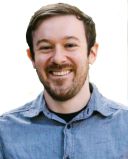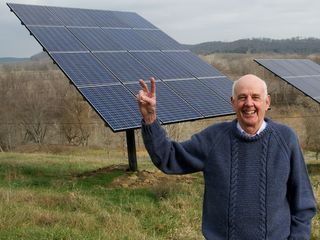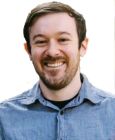
Education
"The Past Is Our Definition"
Learning how to be better citizens from Wendell Berry.
Posted August 16, 2018

You can tell something about an author’s audience by who chooses to share his work, either informally among friends or through more established means such as edited volumes. To date, Wendell Berry’s essays have been collected by the British environmentalist and author Paul Kingsnorth, the theologian Norman Wirzba, and the food journalist Michael Pollan. Not an entirely dissimilar group, to be sure, but their differing professions reflect the breadth of Berry’s engagement with the world. While I have long been aware of Berry’s work, I was prompted to engage with it deeper this summer due to an essay on him by Nick Offerman, the actor most famous for playing Ron Swanson on Parks & Recreation.
It’s no great observation to note that we live in an incredibly polarized time, but, curiously, Berry doesn’t fit neatly into the conservative or liberal camp. There is just enough in his writing to both satisfy and provoke those of all ideological allegiances. Thanks to the Library of America’s efforts to reissue his writings, beginning with the first half of his Port William novels and stories, as well as his long-time publisher Counterpoint releasing The World-Ending Fire: The Essential Wendell Berry, a collection of his non-fiction edited by the aforementioned Kingsnorth, it’s never been easier to find a place to start.
I want to consider the psychology of Wendell Berry—not analyze Berry the author but rather probe the way that he sees the world. Berry has made his living as a thinker and writer but also as a farmer, and his unique connection to land and rootedness has much to offer those of us who feel unmoored.
Berry writes about the history of his Kentucky home in “A Native Hill.” He traces his family’s roots there to his maternal great-great-grandfather and his paternal great-grandfather, although the fog of time makes the details hazy. Berry grew to know the place intimately during his childhood, a connection forged more intensely due to the absence of mechanical means with which to farm the earth. When Berry left a comfortable teaching position at New York University to return, it was the first time that he chose the place, and his return made all the difference. Berry knows when his family began to live on the same acres which he occupies, but he is not naive about the fact that others lived there long before. According to Berry, “I am forever being crept up on and newly startled by the realization that my people established themselves here by killing or driving out the original possessors, by the awareness that people were once bought and sold here by my people, by the sense of the violence they have done to their own kind and to each other and to the earth, by the evidence of their persistent failure to serve either the place or their own community in it.”
What does it mean to be so aware of one’s place, both literal and metaphorical? Not everyone needs to move back to the place where they grew up, of course, but in our flight from our roots we rob ourselves of a sense of history as well as our own culpability and responsibility for the actions of our ancestors. I’m reminded of Ben Affleck having the revelation that his family had once owned slaves removed from his appearance on Finding Your Roots. Looking at the past is by no means comfortable, but it is the only way to move forward authentically into the present. This is the same whether you’re an individual trying to recover from trauma or the scars left in childhood, or are a nation trying to recover a sense of purpose.
It’s not just Berry’s nonfiction that is instructive. In his short story “The Hurt Man,” we get to see what this vision of living in community looks like. Mat Feltner is a five-year-old resident of Port William, Berry’s fictionalized version of his own Port Royal. The town is small and close-knit, and Mat is allowed to range freely among its loose collection of buildings. The only time he was not allowed to roam was on Saturday afternoons and election days, when the liquor flowed freely and inhibitions were lowered. On one such summer afternoon in 1888, Mat was sitting on the porch with his mother when they heard a scuffle in the town below and witness a bloodied man, hounded by a crowd, running towards them. Mat is surprised when his mother shoos the wounded man inside the house and stands guard, refusing entry to the other men until they assure her they mean him no harm. With Mat and the men watching, she tenderly dresses his wounds and assures the man that he will be okay. Mat witnesses a transformation in his mother as she regards the man: “It was pity, but it was more than that. It was a hurt love that seemed to include entirely the hurt man. It included him and disregarded everything else. It disregarded the aura of whiskey that ordinarily she would have resented; it disregarded the blood puddled on the porch floor and the trail of blood through the hall.” In one swift moment, Mat comes to terms with the possibility of loss and the assurance of love.
Whole books can and should be written on Wendell Berry’s contribution to American literature. Space does not allow me to do justice to his writing here, but I hope the small glimpses I have provided encourage others seeking to recover a sense of place or how to best be a neighbor to look into his work. In these times we could all use his patient instruction.

